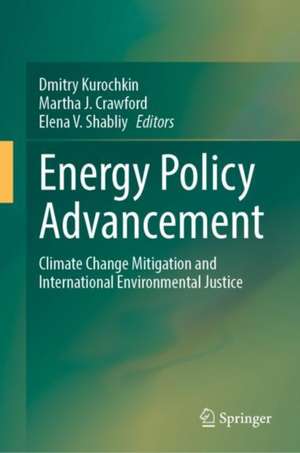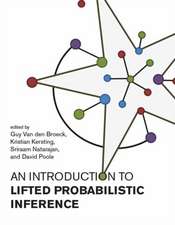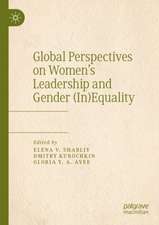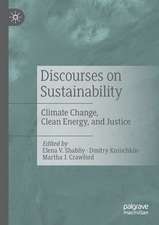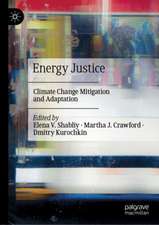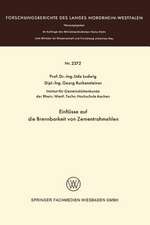Energy Policy Advancement: Climate Change Mitigation and International Environmental Justice
Editat de Dmitry Kurochkin, Martha J. Crawford, Elena V. Shabliyen Limba Engleză Hardback – 6 dec 2021
Climate change is evident in many forms, such as, for example, the most obvious—recent weather fluctuations that happen around the world. Floods, droughts, and hurricanes are those visible signs of climate change. Human-caused climate change is projected to greatly impact marine, freshwater, and terrestrial life. Temperatures in Alaska and the Arctic have increased over the last 50 years at a rate more than twice as fast as the global average temperature. Poor people are vulnerable to man-made climate change and respond rapidly to its impacts.
Diverse knowledge of and approaches to climate change help understand this growing problem; global average air temperature has increased in the recent past by approximately 1.0°C (1.8°F). According to the Climate Science Special Report, the last several years have been record-breaking, and the period of 1901–2016 is the warmest. Greenhouse gas (GHG) emissions are still rising, with damaging effects on the Earth’s climate. At the moment, the concentration of CO2 is higher than at any point in time—at least the past 800,000 years. However, carbon dioxide (CO2) is not the only GHG that impacts human-induced climate change.
| Toate formatele și edițiile | Preț | Express |
|---|---|---|
| Paperback (1) | 726.40 lei 6-8 săpt. | |
| Springer International Publishing – 7 dec 2022 | 726.40 lei 6-8 săpt. | |
| Hardback (1) | 731.83 lei 6-8 săpt. | |
| Springer International Publishing – 6 dec 2021 | 731.83 lei 6-8 săpt. |
Preț: 731.83 lei
Preț vechi: 892.48 lei
-18% Nou
Puncte Express: 1098
Preț estimativ în valută:
140.05€ • 145.68$ • 115.62£
140.05€ • 145.68$ • 115.62£
Carte tipărită la comandă
Livrare economică 14-28 aprilie
Preluare comenzi: 021 569.72.76
Specificații
ISBN-13: 9783030849924
ISBN-10: 3030849929
Pagini: 249
Ilustrații: XI, 249 p. 36 illus., 24 illus. in color.
Dimensiuni: 155 x 235 mm
Greutate: 0.57 kg
Ediția:1st ed. 2022
Editura: Springer International Publishing
Colecția Springer
Locul publicării:Cham, Switzerland
ISBN-10: 3030849929
Pagini: 249
Ilustrații: XI, 249 p. 36 illus., 24 illus. in color.
Dimensiuni: 155 x 235 mm
Greutate: 0.57 kg
Ediția:1st ed. 2022
Editura: Springer International Publishing
Colecția Springer
Locul publicării:Cham, Switzerland
Cuprins
Foreword.- Chapter 1: Climate Policy Advancement and International Environmental Justice .- Chapter 2: A Changing Paradigm for Caribbean Universities: Climate Change Mitigation, Sustainability, and Policy.- Chapter 3: What Can Environmental Disasters Teach us about Grievances? A GIS Analysis.- Chapter 4: Renewable Energy Sources and Climate Change Mitigation.- Chapter 5: Income Inequality and the Environment: Mechanisms, Empirics and Policy .- Chapter 6: Energy Transformation in Canada’s Northern Territories.- Chapter 7: Resilience to Environmental Challenges and the National Disaster Insurance Program in Kenya.- Chapter 8: Ethiopia’s Climate Change Policies in Retrospect: From Conservationism to Green Economy.- Chapter 9: Emerging Frontiers of Energy Transition in Sri Lanka.- Chapter 10: Environmental Policy Development in Nigeria .- Chapter 11: Covid-19Transition Turbulence: Structural Violence in a Time of Economic Paradigm Change.- Conclusion.
Notă biografică
Dr. Dmitry Kurochkin is a Senior Research Analyst at Harvard University, where he teaches Data Science, Time Series Analysis, and Econometrics. Dmitry graduated magna cum laude from Lomonosov Moscow State University where he majored in Physics and earned his Ph.D. in Mathematics at Tulane University. Kurochkin is an interdisciplinary scholar and holds Master’s Degrees in Applied Mathematics, Statistics, Chemistry, and Economic Analysis and Policy. He is a co-editor of Renewable Energy: International Perspectives on Sustainability (Palgrave Macmillan, 2019), Global Perspectives on Women's Leadership and Gender (In)Equality (Palgrave Macmillan, 2020), and Discourses on Sustainability: Climate Change, Clean Energy, and Justice (Palgrave Macmillan, 2020).
Dr. Martha J. Crawford is Dean of the Jack Welch College of Business & Technology at Sacred Heart University. She has both business and academic experience. She has served as seniorvice president of Research & Development for several companies based in France such as L’Oreal and Air Liquide, where she has worked to foster technological innovation. Her academic background includes having taught MBA core-curriculum courses at the Harvard Business School on leadership and corporate responsibility in addition to developing a course on energy that was nominated for a national prize. Crawford earned her master’s degree in business administration from the Collège des Ingénieurs in Paris and MS and doctorate degrees in environmental and chemical engineering from Harvard University. She has also served as a board member in both academic and professional settings for Sevres International School, French National Labs for Scientific Research and French National Energy Labs and board director for Altran, Suez and Ipsen all in France. Crawford also has several publications focusing on environmental management and quality.
Dr. Elena V. Shabliy is a Visiting Scholar at Columbia University and NYU; she was a Visiting Scholar at Harvard University in 2015-2017, NYU in 2020, and Boston University in 2020-2021. She is the editor of Representations of the Blessed Virgin Mary in World Literature and Art (Lexington, Rowman and Littlefield, 2017) and co-editor of Emancipation Women’s Writing at Fin de Siècle (Routledge, 2018), Renewable Energy: International Perspectives (Palgrave Macmillan, 2019), Global Perspectives on Women’s Leadership and Gender (In)Equality (Palgrave Macmillan, 2020), Discourses on Sustainability: Climate Change, Clean Energy, and Justice (Palgrave Macmillan, 2020), and Women’s Human Rights in Nineteenth-Century Literature and Culture (Lexington, Rowman and Littlefield, 2020). She studied at Lomonosov Moscow State University; in 2018, Dr. Shabliy was a Postdoctoral Fellow at Harvard University.
Dr. Martha J. Crawford is Dean of the Jack Welch College of Business & Technology at Sacred Heart University. She has both business and academic experience. She has served as seniorvice president of Research & Development for several companies based in France such as L’Oreal and Air Liquide, where she has worked to foster technological innovation. Her academic background includes having taught MBA core-curriculum courses at the Harvard Business School on leadership and corporate responsibility in addition to developing a course on energy that was nominated for a national prize. Crawford earned her master’s degree in business administration from the Collège des Ingénieurs in Paris and MS and doctorate degrees in environmental and chemical engineering from Harvard University. She has also served as a board member in both academic and professional settings for Sevres International School, French National Labs for Scientific Research and French National Energy Labs and board director for Altran, Suez and Ipsen all in France. Crawford also has several publications focusing on environmental management and quality.
Dr. Elena V. Shabliy is a Visiting Scholar at Columbia University and NYU; she was a Visiting Scholar at Harvard University in 2015-2017, NYU in 2020, and Boston University in 2020-2021. She is the editor of Representations of the Blessed Virgin Mary in World Literature and Art (Lexington, Rowman and Littlefield, 2017) and co-editor of Emancipation Women’s Writing at Fin de Siècle (Routledge, 2018), Renewable Energy: International Perspectives (Palgrave Macmillan, 2019), Global Perspectives on Women’s Leadership and Gender (In)Equality (Palgrave Macmillan, 2020), Discourses on Sustainability: Climate Change, Clean Energy, and Justice (Palgrave Macmillan, 2020), and Women’s Human Rights in Nineteenth-Century Literature and Culture (Lexington, Rowman and Littlefield, 2020). She studied at Lomonosov Moscow State University; in 2018, Dr. Shabliy was a Postdoctoral Fellow at Harvard University.
Textul de pe ultima copertă
This book states that sustainable development has become an influential discourse worldwide. Climate change is not only an urgent problem, but it is also a fundamental spiritual question concerning social justice and sustainable peace development as well as solidarity among people of various religious backgrounds and different countries. Thus, this global problem must be faced and recognized for future actions and strategies. However, the politics of fear must be replaced with a culture of peace, hope, and compassion, and this urgent problem must be faced with an optimistic attitude and a certain degree of preparedness.
Climate change is evident in many forms, such as, for example, the most obvious—recent weather fluctuations that happen around the world. Floods, droughts, and hurricanes are those visible signs of climate change. Human-caused climate change is projected to greatly impact marine, freshwater, and terrestrial life. Temperatures in Alaska and the Arctic have increased over the last 50 years at a rate more than twice as fast as the global average temperature. Poor people are vulnerable to man-made climate change and respond rapidly to its impacts.
Diverse knowledge of and approaches to climate change help understand this growing problem; global average air temperature has increased in the recent past by approximately 1.0°C (1.8°F). According to the Climate Science Special Report, the last several years have been record-breaking, and the period of 1901–2016 is the warmest. Greenhouse gas (GHG) emissions are still rising, with damaging effects on the Earth’s climate. At the moment, the concentration of CO2 is higher than at any point in time—at least the past 800,000 years. However, carbon dioxide (CO2) is not the only GHG that impacts human-induced climate change.
Climate change is evident in many forms, such as, for example, the most obvious—recent weather fluctuations that happen around the world. Floods, droughts, and hurricanes are those visible signs of climate change. Human-caused climate change is projected to greatly impact marine, freshwater, and terrestrial life. Temperatures in Alaska and the Arctic have increased over the last 50 years at a rate more than twice as fast as the global average temperature. Poor people are vulnerable to man-made climate change and respond rapidly to its impacts.
Diverse knowledge of and approaches to climate change help understand this growing problem; global average air temperature has increased in the recent past by approximately 1.0°C (1.8°F). According to the Climate Science Special Report, the last several years have been record-breaking, and the period of 1901–2016 is the warmest. Greenhouse gas (GHG) emissions are still rising, with damaging effects on the Earth’s climate. At the moment, the concentration of CO2 is higher than at any point in time—at least the past 800,000 years. However, carbon dioxide (CO2) is not the only GHG that impacts human-induced climate change.
Caracteristici
Examines current energy policy advancement strategies in developed and developing economies Presents an innovative approach to climate change mitigation and adaptation Provides theoretical underpinnings of international environmental justice framework
